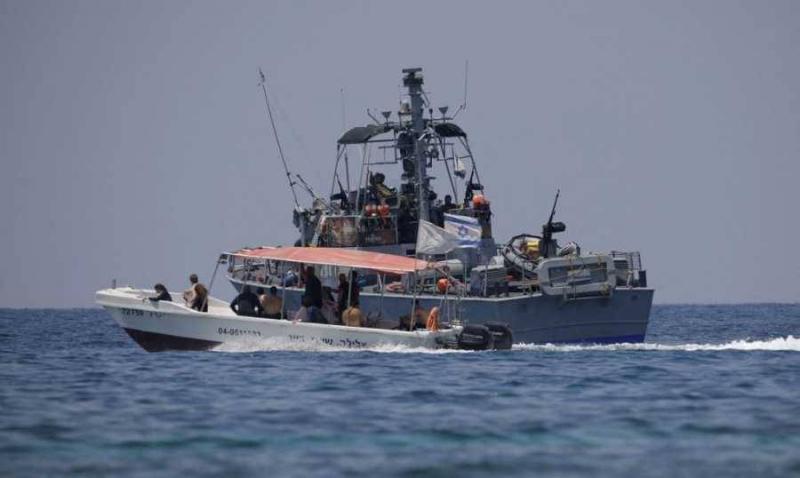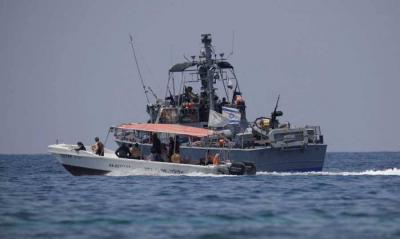Is it permissible to hold a Lebanese summit that, after a long separation, brings together the President of the Republic, the President of the Parliament, and the caretaker Prime Minister to receive an American envoy and negotiate with him on the details of maritime border demarcation between Lebanon and Israel? What is left for you, esteemed "hospitality" presidents, to receive kings and leaders?! However, the meeting of the three presidents revealed that the Lebanese system, since the Taif Constitution, has been transformed by the political elite, initially under Syrian supervision, into a hybrid federal system, not only based on sectarianism but also on denominationalism. Even so, the proponents of the Taif Agreement criticize federalism and consider it a division. Indeed, the federalism applied since the early 1990s is a constitutional division imposed from above and a real division from below, while systematic civilizational federalism is a union. Every time we meet prominent diplomats accredited in Lebanon, they acknowledge the odd federal reality and either urge us to exit it or to implement it according to constitutional protocols. The American envoy Hochstein did not "force" the meeting of the three presidents together except because he was convinced of the existence of at least three authorities in Lebanon, each of which has veto power as a de facto federal reality.
Regardless, the progress achieved in maritime border negotiations between the Lebanese and Israeli sides through American mediation is sufficient to resume meetings in Naqoura, but it is not yet sufficient for signing the agreement with its annexes. While Lebanon and Israel prioritize extracting gas over the sharp dispute about borders, especially after Lebanon retreated to line 23, there remains a fear that Israel may conceal the last-minute complications, as is often its habit. The Lebanese state approaches the negotiations from the perspective of financial benefits, while the state of Israel approaches them from a political benefits perspective as well. In fact, it is impossible to separate the imminent maritime agreement regarding gas fields from ongoing events in the region, the Vienna Conference, and the American/Iranian talks, Saudi/Iranian relations, the divisions of the new regional "system," the peace movement in the Middle East, the repercussions of the war in Ukraine, and Europe’s need for energy from Mediterranean Basin countries. A prominent evidence of this correlation is Iran's return to the Vienna Conference to resume negotiations over the nuclear agreement just 24 hours after Hochstein’s visit to Beirut and Israel.
With a delay of forty years, Lebanon is heading toward a revised and partitioned version of the May 17, 1983 Agreement, which was supported by everyone back then, Muslims and Christians alike, before washing their hands of it, leading to Lebanon's fragmentation and explosion in the mountains, the capital, and the South. Since the Madrid Conference in 1991, the "resistant" Lebanon has been concluding a series of agreements and understandings through the U.S. and the United Nations, which will funnel, at a regional moment, into a permanent Lebanese/Israeli peace without abandoning the restoration of Jerusalem at a later determined date. From the April Understanding of 1996 (Operation "Grapes of Wrath") to the Blue Line in 2000, through Resolution 1701 and the cessation of military actions against Israel in 2006, culminating in land border talks and maritime boundary negotiations with subsequent commercial and marketing aspects towards Europe, a peaceful trajectory is being outlined that is hard to backtrack from. Thus, the military threats of Hezbollah have become akin to gunfire in the air.
What concerns Hezbollah at present is to showcase its weapon as a maker of war and peace; and that retaining it, consequently, is a necessity at all times and in all situations. What also preoccupies Hezbollah is to deceive Lebanese public opinion into believing that the anticipated maritime agreement between Lebanon and Israel is the result of its military threats and not the fruit of diplomatic efforts, and to inform both the Arab and international communities that it is the primary reference in Lebanon, with the Lebanese authority merely acting as its spokesperson. While Hezbollah, which entered into the peaceful resolution at the end of its barrel, aligns itself with the state's position, it also aims to leverage the Lebanese/Israeli agreement for Iran’s benefit to utilize it in its negotiations with America.
However, the U.S. considers that the maritime agreement strengthens the sovereign line in Lebanon and affirms the legitimacy of the central state, while Hezbollah views it as a new power for itself and a consolidation of its control in the south and its maritime resources. Therefore, Washington has once again warned the Lebanese authorities against the repercussions of sharing gas and oil revenues with Hezbollah, as this would expose the Lebanese state to international sanctions. We should not forget that U.S. envoy Amos Hochstein, upon his arrival last week in Beirut, cautioned the Lebanese state about the consequences of accepting Iranian fuel gifts without providing an alternative. In the same context, the U.S. consistently imposes sanctions on any institution, party, or individual suspected of facilitating the export of Iranian oil or financing Hezbollah.
Thus, before the Lebanese state signs a maritime border demarcation treaty with Israel that delineates Lebanon's rights in oil and gas wells, it is crucial for it to inform the Lebanese people about where the revenue from the energy extracted from these southern wells will go. The legitimacy of this question stems from the skepticism regarding the state’s ability to control the extracted energy and to transfer the financial revenues entirely to the state treasury without any others. The porous borders between Lebanon and Syria, along with the legal and illegal crossings that are traversed by smuggling convoys, arms, and drug trucks do not help build trust in the state's ability to regulate energy production in the south, especially since the team preventing border control in the north and east with Syria is the same team that holds sway in the south despite Resolution 1701 and the presence of the Lebanese army and international forces.
In clearer terms, we fear that Hezbollah may consider itself entitled to a regional claim over the wealth of the south, whether land or maritime, seeking to carve out a share for itself from its origin. At that point, the Lebanese will not only question how to handle Hezbollah's arms, but also how to prevent it from cutting a share of oil and gas at the expense of the Lebanese state and future generations. Therefore, alongside the ongoing negotiations between Lebanon and Israel regarding the southern maritime borders, the Lebanese state must engage in negotiations with Hezbollah on the aforementioned topic. And if the U.S. oversees and guarantees any agreement reached with Israel, what reference can oversee negotiations between the Lebanese state and Hezbollah and ensure their implementation? Hence, the importance of selecting a new president for the republic who communicates with all parties and defends the rights of the Lebanese state this time.




